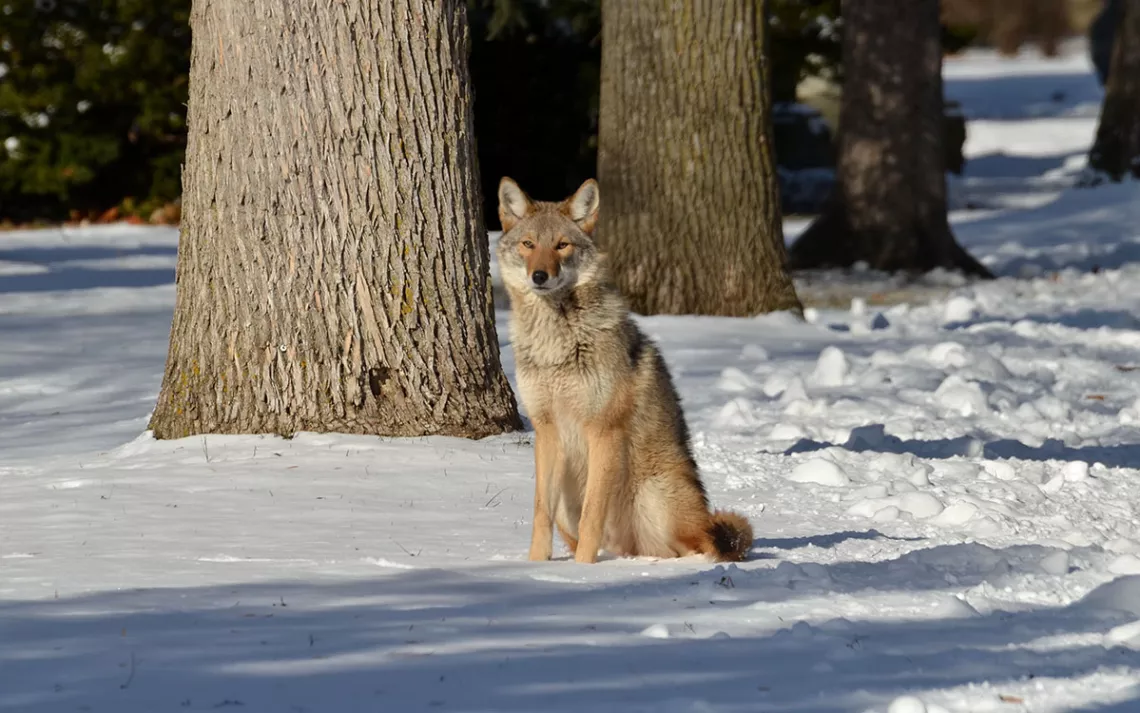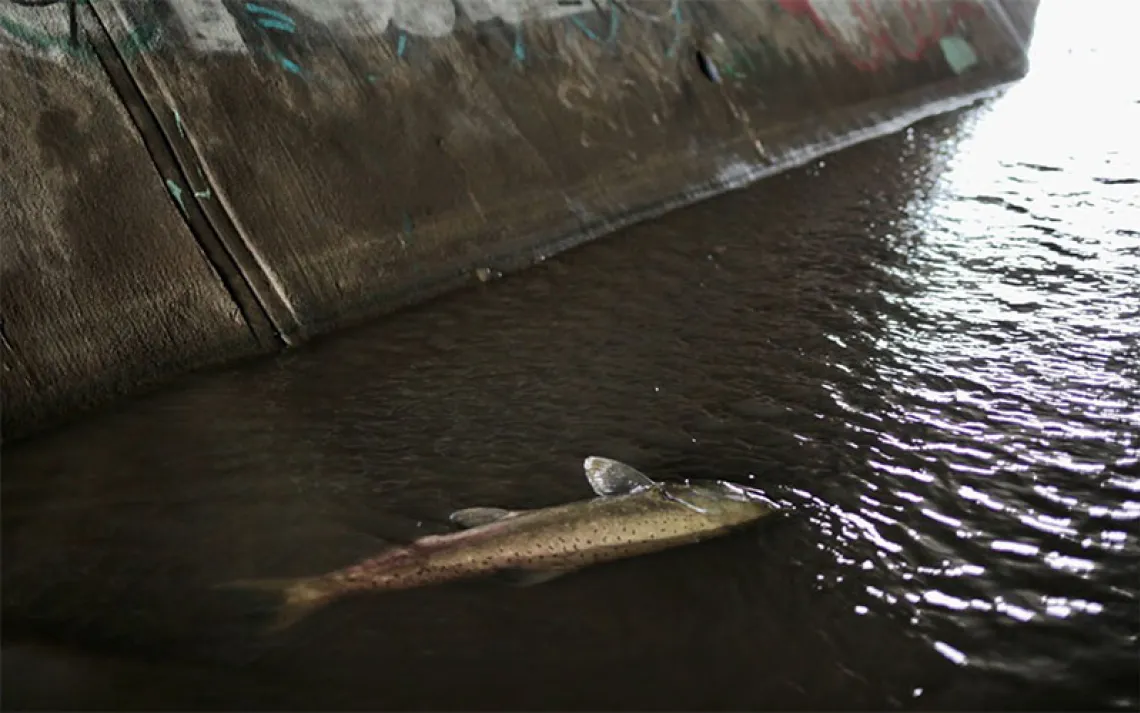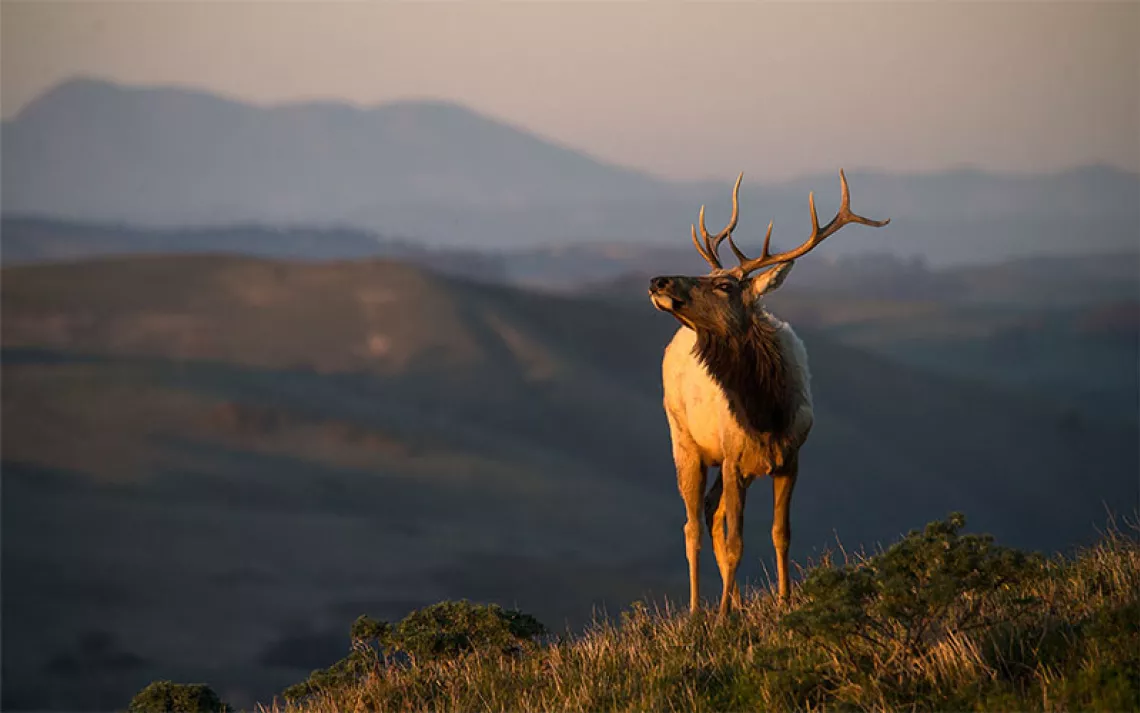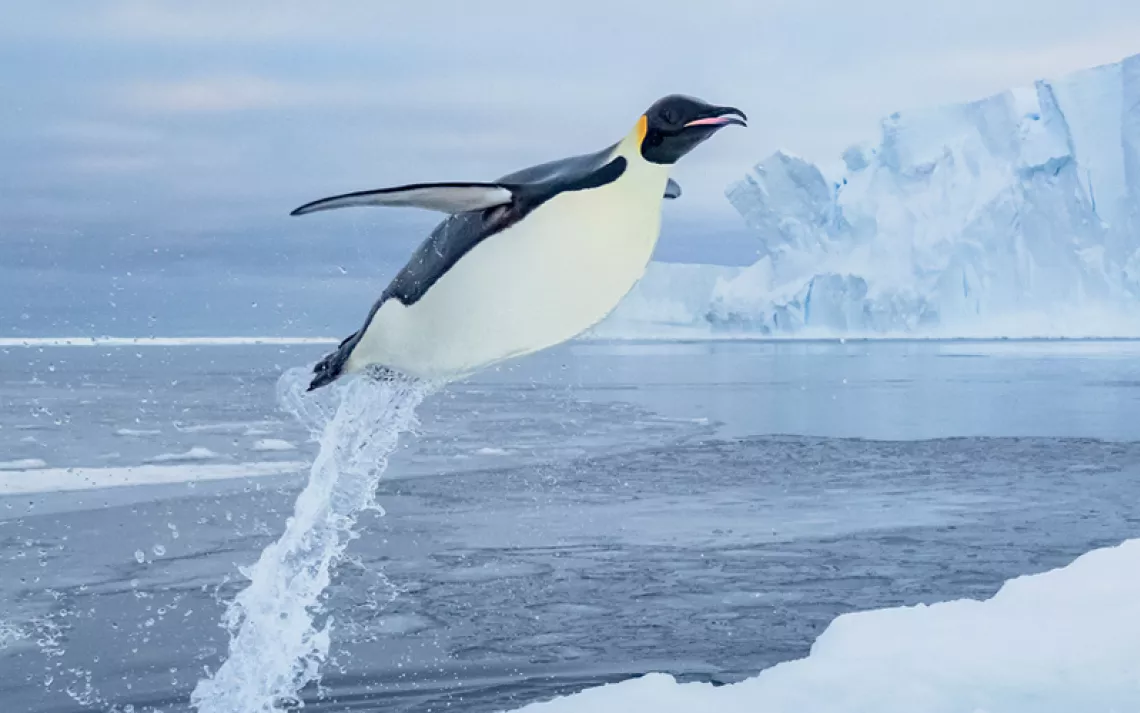Thousands of Wild Animals Are Killed Annually in New York for Fun
New Yorkers urge Governor Hochul to sign a wildlife killing contests bill before the end of the year

A coyote sits in the snow. | Photo by Bob Hilscher/iStock
When the New York state legislature passed a bill to ban wildlife killing contests in June, local conservation groups were thrilled that their state might be the ninth to outlaw competitions that incentivize participants to massacre wild animals. Five months on, despite strong support in both chambers of the state’s legislature, Democratic New York Governor Kathy Hochul has yet to sign the bill into law. As the New York bill sat in the governor's office, Oregon passed its own ban in September, making it the ninth state with such a rule. Now, wildlife advocates in New York are mounting a considerable outreach campaign to raise awareness about the bill in the final days of the legislative session, which ends on December 31, 2023. Failing to pass the measure by then would be a death sentence for thousands of animals across the state since most contests are held between January and March.
The Humane Society of the United States, Project Coyote, the Adirondack Council, the Wolf Conservation Center, and other advocacy groups are using social media to both inform people about the contests and the proposed law to stop them. Some of the groups have held rallies and hosted webinars. Others are in direct contact with the governor's policy team to ensure the bill remains on Governor Hochul’s radar. Many of the advocacy groups are sending email blasts to encourage their supporters to urge Governor Hochul to sign the bill into law. Their collective efforts have amassed thousands of responses and actions from people who want to see the “wanton waste” of life ended, says Brian Shapiro, the New York state director of the Humane Society of the United States. The Wolf Conservation Center’s action alert alone has generated over 1,800 letters to the governor’s office.
“This is a very popular piece of legislation that has attracted interest not only from environmental advocates but also from veterinarians, farmers, traditional hunters, and stakeholders from across the spectrum of New York,” Shapiro said. “These contests serve no practical purpose whatsoever. It's just about lining individuals’ pockets with money at the expense of our shared wildlife resources, which are held in public trust for all people of the state.”
Wildlife killing contests have been around for decades, yet their premise remains unchanged even in the face of a biodiversity crisis and despite a much greater body of science that highlights the role of predators in ecosystems. Sponsors, such as local Rod and Gun clubs, bars, and even local municipal services, award cash prizes or hunting equipment for killing varying superlatives—the largest, smallest, and most—of a given species over a set period, usually several days. Across the country, Shapiro says, the number of animals killed in these contests can reach upwards of 100,000 annually. In New York, many of the events focus on small- to medium-sized predators, such as coyotes, foxes, and bobcats, which is why organizers sometimes call the contests predator derbies.
Since there is no limit on the number of animals an individual can kill and little to no oversight for these events, participants can wipe out entire local populations of a species. The methods of killing, too, are frequently excessive—all manner of firearms, night vision, thermal scopes, luring devices, traps, and even hounds are allowed in pursuit of quarry. One Humane Society investigation from 2020 found that contestants killed 200 coyotes in a single event. At another contest in a nearby county, one person killed 17 foxes. The investigation also found that pursuers often leave animal carcasses to rot in trash piles.
The bill that advanced through the legislature would make these activities illegal. More specifically, it would prohibit people from organizing and promoting any competition or derby with the intent of killing animals for entertainment and rewards. Currently, these events occur across New York and are advertised in chat groups and private message boards. The bill’s sponsors, Democratic assembly member Deborah Glick and Democratic senator Timothy Kennedy, are keen to note that this would not affect deer, black bear, and turkey, species for which there is already a regulated hunting season that includes limits and restrictions on what and where animals can be hunted. The law would also exempt fishing derbies.
“This is in no means a ban on hunting, and nor would I support that, and I think most wouldn't,” Senator Kennedy said. “But when it comes down to having wildlife killing contests, it just really speaks to the humanity of it all, or the lack thereof, as long as these contests continue to be legal here in the state of New York.”
The effort here, and the recent ban in Oregon, mirror a national trend. Similar prohibitions exist in Arizona (where the first wildlife killing contest was held in the 1950s), California, Colorado, Massachusetts, Maryland, New Mexico, and Washington. Advocates are also calling on the Illinois Department of Natural Resources to end the practice. Many of these measures pass through such an agency, but a new administration can reverse this type of rule-making. In the case of New York, passing a law through the state legislature serves as a much more permanent way to prevent wildlife killing contests from happening.
Critics of the proposed law say that the contests serve as a management tool to control nuisance animals that would otherwise prey on livestock and decimate populations of game species like deer. It is for this reason that most of the contests target predators, especially coyotes. But other animals, such as crows, squirrels, and rabbits, frequently find themselves in the crosshairs of participants. Some of the bill’s detractors have also tried to frame the issue as a rural-urban divide, with pro-killing contest groups saying that this is a part of the rural heritage of New York.

Make every day an Earth Day
Get articles like this one sent directly to your inbox.
With this action you affirm you want to receive Sierra Club communications and may vote on policy designated by the Sierra Club Board.
However, many wildlife organizations, such as Project Coyote and the Humane Society, say most New Yorkers have no idea animals are killed in this way and warn these contests are an ineffective way to manage a species. One Humane Society survey from last year found that over 80 percent of respondents opposed wildlife killing contests. As far as impacts on livestock, the number of sheep in New York—the state’s primary livestock—has remained steady around 80,000, for years, according to data from the US Department of Agriculture. And the NY Department of Environmental Conservation estimates that the state may have too many deer.
The coalition of advocates also says that rapacious killing is unnecessarily cruel and unethical. Small- to medium-sized predators play a crucial role in keeping ecosystems healthy. They prey on rodents such as mice, reducing the spread of ticks and Lyme disease, and they eat sick and weak animals, ensuring that healthy individuals live on the landscape. These contests also undermine the state's ability to recover wolves, an endangered species at the federal and state levels. In December 2021, a hunter shot a wolf and told the state wildlife agency that he thought it was a coyote.
It’s these types of incidents and figures that advocates say the governor will weigh as she considers the decision to pass the bill or not. Some fear the governor could be slow-walking the bill. Still, supporters, such as Shapiro and Renee Seacor, the carnivore conservation advocate at Project Coyote, fully expect it will be passed into law and think the delay could reflect the deluge of other bills currently waiting for the governor’s signature.
“In New York, it's not atypical for the process to take quite a while for bills to get signed after the end of the legislative session,” Seacor said. “[The governor] reviews bills in batches, so it could be that her office is just continuing to work through all the legislation that's currently before them for signature.”
According to Governor Hochul’s office, the bill has yet to be called to her desk. If it is called, the governor will do one of three things, Shapiro says: sign it, take no action, or veto it. But given the timing, if Governor Hochul doesn’t sign the bill into law, lawmakers will likely have to submit the bill anew in the next legislative session. If she takes no action, there’s a chance the bill could become law, but close watchers say that’s not likely to happen.
“It's always a matter of making quite a bit of noise in order for legislators to realize that this is something that New Yorkers really care about,” Seacor said. “For such a critical wildlife conservation and protection issue, we hope it takes effect as quickly as possible.”
 The Magazine of The Sierra Club
The Magazine of The Sierra Club



